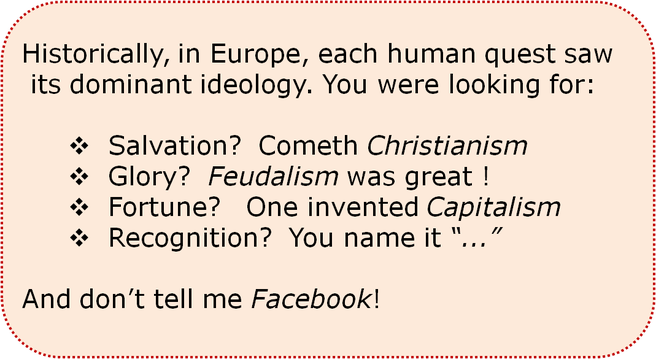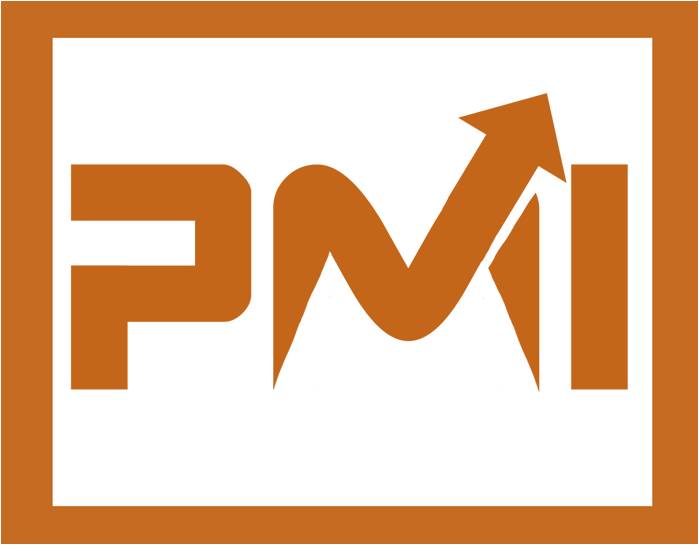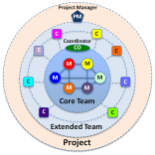
In my opinion, it must be supported by an improved social technology, yet keeping with our craving for power and privilege. Semantically, what would replace Christ, King or Capital? The answer looks obvious at the surface : I, so is Individualism to be raised up to the level of an ideology? Another avenue is to look at the commons movement with the sharing and caring economy currently being praised. What about "Commonism" ... You name it !


 RSS Feed
RSS Feed



